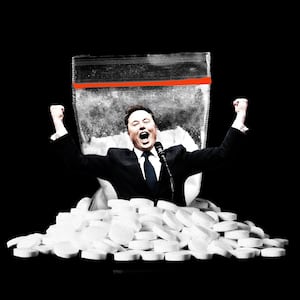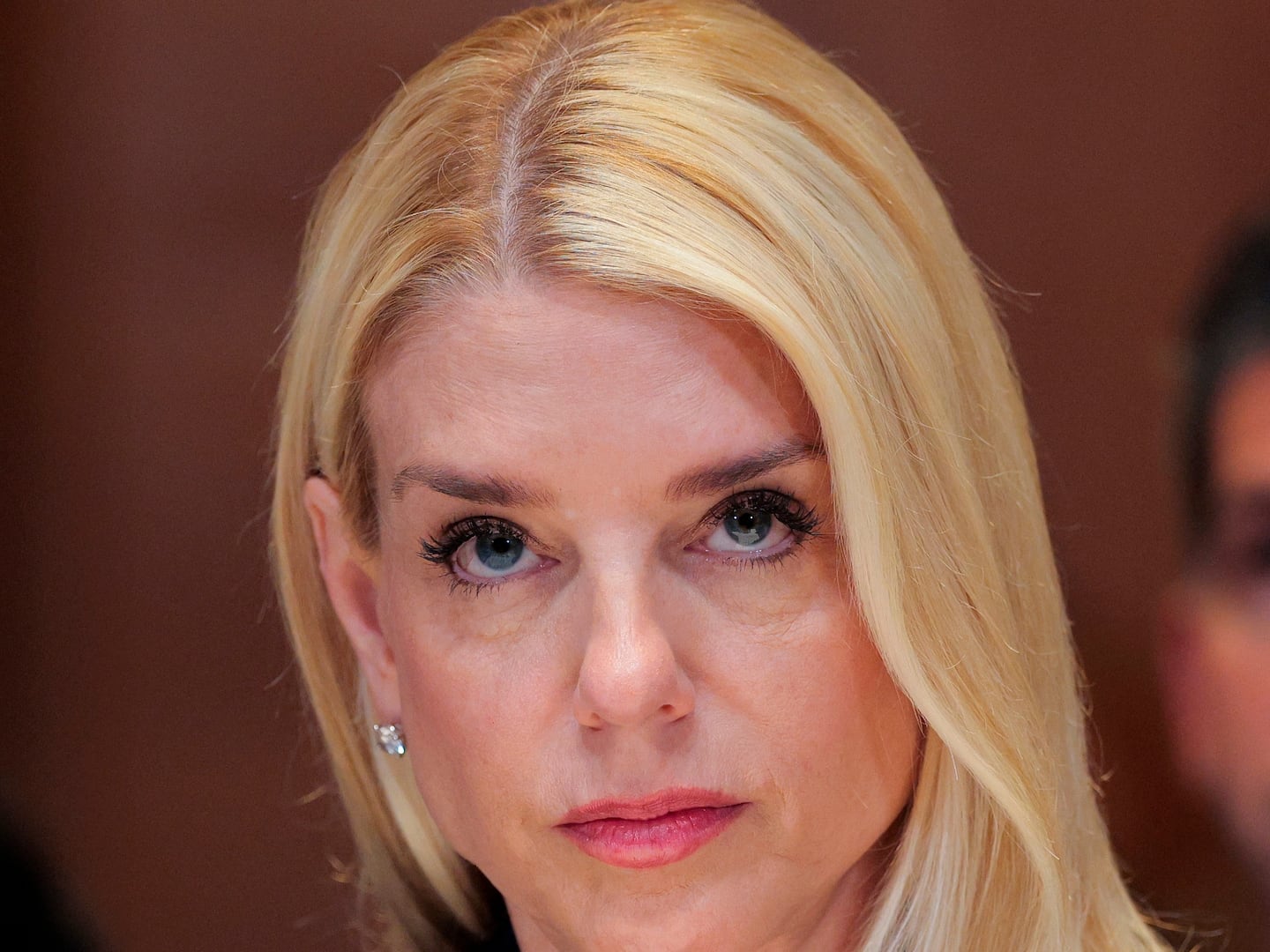Elon Musk is likely using ketamine “multiple times per week” if his reported bladder issues are true, two doctors tell the Daily Beast.
A bombshell report by The New York Times alleged Friday that Musk, 53, used drugs like ketamine more often than previously known—an amount of use which reportedly prompted him to admit to friends that he was suffering from “bladder issues.”
Dr. Ryan Marino, a toxicologist with the University Hospitals system in Cleveland, Ohio, said bladder problems are a typical symptom that impacts chronic users of ketamine, a powerful anesthetic used to treat conditions like depression, but also infamous for recreational abuse. It was recently blamed for the death of Friends actor Matthew Perry.
The bladder problems were not defined by The Times, but can include frequent and painful urination, “episodes of incontinence,” bladder shrinkage, kidney failure, and the extreme end, the body excreting the bladder’s lining.
Musk told former CNN host Don Lemon last year that he takes “a small amount” of ketamine once every two weeks, as a prescribed treatment for depression. When asked by Lemon if he ever abuses the drug, he said, “I don’t think so.”
Marino said ketamine-induced bladder issues are “variable,” but their severity is usually linked to how much an individual uses or abuses the drug. Those who use ketamine every two weeks do not usually suffer from bladder issues, he said.
“While it is technically possible to develop this issue from using twice a month, it is much more common in people who use ketamine multiple times per week,” he told the Beast.
Shari B. Kaplan, a Boca Raton, Florida-based licensed clinical social worker who is a ketamine expert, agreed that it is unlikely Musk would suffer from “ketamine-induced cystitis” unless he were taking the drug multiple times a week.
“The clinical data and our observations suggest that significant bladder damage is usually correlated with frequent, high-dose use, often several times per week or daily,” she told the Beast.
The Times spoke to more than a dozen people close to Musk, including two who said the world’s richest man “had been using ketamine often, sometimes daily, and mixing it with other drugs” last year. The allegation contradicted Musk’s public remarks about drug use, which included him telling his biographer, “I really don’t like doing illegal drugs.”
Musk’s lawyer did not respond to a request for comment from the Daily Beast. Musk, who officially left the Department of Government Efficiency on Friday, brushed away a reporter’s question about the Times report while in the Oval Office with President Donald Trump.
Sources said the “line between medical use and recreation was blurry” when it came to Musk’s drug habit. They also claimed he used Ecstasy, a stimulant with psychedelic properties, as well as magic mushrooms, which are hallucinogenic.
This mixing creates an additional list of potential complications, Marino said. He noted that each of the drug trio has a valid medical purpose when used correctly, but things can go sideways for users who mix them recreationally.
“They could certainly cause worsening mental health symptoms—like anxiety—and even worsening of physical health,” he said of the reported mixing.
Kaplan concurred. She also said that Musk’s online outbursts, which exploded in frequency after he went full-MAGA last year to prop-up Trump’s presidential campaign, may be tied to his drug use.
“While the short-term effects [of ketamine] can include euphoria, detachment, or relief from depressive symptoms, chronic or high-frequency use can impact mood regulation, executive function, and judgment, especially when compounded by sleep deprivation, stress, or other substances,” she said.

Still, she emphasized that “we cannot attribute behavior solely to ketamine use without understanding the broader biopsychosocial context.”
Kaplan said it is certain that “polydrug use,” as Musk is accused of, is “particularly risky” for one’s health and may be behind mood swings.
“While substances like ketamine and psilocybin hold immense therapeutic potential when used appropriately, self-medicating, especially in combination and at unpredictable dosages, can destabilize mental health, worsen anxiety or depression, and in some cases lead to emotional dysregulation, paranoia, psychosis, or a blunted sense of reality,” she said.
Kaplan said the drugs being used by Musk can be hugely helpful for those with mental health issues. However, at a point, their use in excess can have an inverse effect.
“If underlying wounds go untreated, and substances are used to bypass rather than process pain, the individual may become further disconnected from themselves, their relationships, and reality, perpetuating the very distress they seek to escape,” she said.

“Ketamine, like many tools in mental health, can be transformative when used responsibly under skilled guidance. But when taken without proper repair work preparation, along with post-treatment integration, or if used in conjunction with other substances, it can create more harm than healing.”









